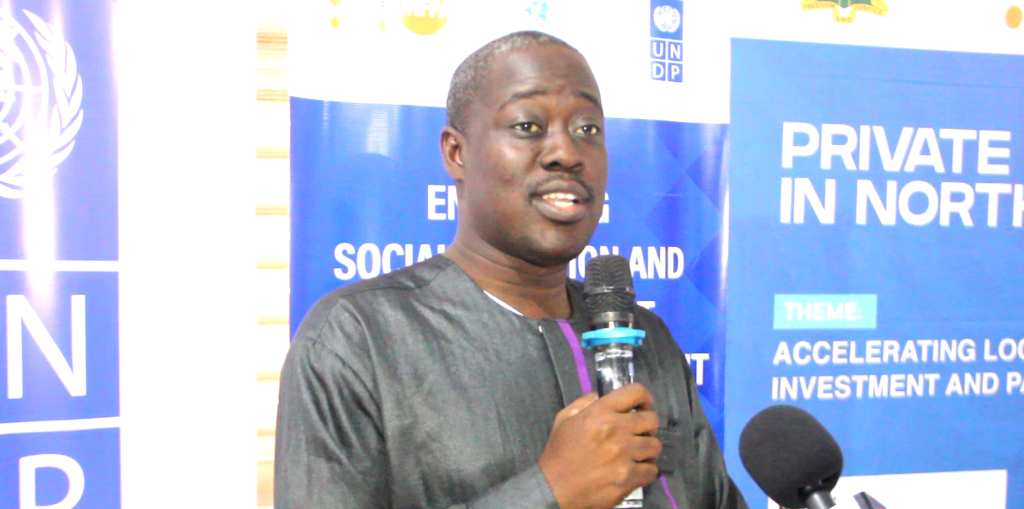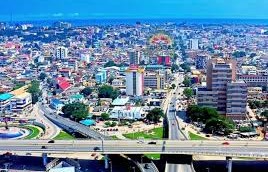The National Development Planning Commission (NDCP), has observed that Ghana’s national development can only succeed if it is inclusive, locally grounded, and driven by strong, strategic partnerships.
According to NDPC, all effort must be put in place to ensure that every district, whether urban or rural, coastal or northern, resource-endowed or resource-challenged has the tools, data, and institutional support it needs to unlock its unique comparative advantage and attract investment that creates real, sustainable livelihoods.
The commission noted that for too long, economic opportunity has remained heavily concentrated in just a few regions and cities to the neglect of regions like the Upper East, Upper West, and North East regions.
Speaking on behalf of NDPC Director General Dr Audrey Smock Amoah in Tamale, Principal Planning Analyst at the commission Mr Charles Konglo, commended UNDP for selecting the three regions as their focus areas in their peacebuilding project.

The regions, Dr Audrey Smock Amoah said are endowed with rich agricultural potential, artisanal heritage, renewable energy sources, and resilient human capital, particularly in for youth and women.
The future of Ghana’s development Dr Audrey stated does not lie in Accra alone but in Bawku West, Bongo, Garu and every community bold enough to believe in its own potential.
The Commission, he explained, is mandated by the Constitution to advise the President of the Republic on development planning policy and strategy but beyond the advisory role, NDPC is also tasked with a deeper responsibility to ensure the balanced and equitable development of all regions and districts in Ghana.
The commission, Dr Audrey said, is aware of the structural challenges in these regions including limited access to financial services, insufficient private investment, climate vulnerabilities and widespread unemployment.
The enormous untapped potential of these regions he added include basket weaving and shea processing to dryland farming, livestock production, eco-tourism, and solar energy among the many economic possibilities are not just theoretical but visible, practical, actionable and achievable.
The gap between potential and prosperity Dr Audrey stated is not a lack of vision but rather a lack of investment, coordination, and forward-thinking local leadership.
The UNDP and under the Peacebuilding Fund, have taken proactive steps to close the gap. The steps rolled out include an Investment Toolkit to help District Assemblies to among other things assess investment readiness, identify and prioritize sectors of comparative advantage, develop concrete investment cases and business-friendly profiles, and ultimately, attract private investment and diversify revenue streams.
The eight of the pilot districts beneficiaries including Bawku West, Bongo, Garu, Chereponi, Bunkpurugu-Nankpanduri, Yunyoo-Nasuan, Wa West and Sissala West have already used the toolkit to craft localized investment strategies.
These strategies Dr Audrey noted are not just documents but expressions of intent and blueprints for real transformation.
The investment strategies, he added, seeks to promote a new development mindset, one where District Assemblies do not see themselves merely as administrators of decentralized functions, but as entrepreneurial development leaders, driving economic growth and attracting investment to their jurisdictions.
This, Dr Audrey stated, requires a cultural shift in local governance, away from a compliance-oriented model and toward a performance-driven, opportunity-seeking model of leadership. This shift begins by understanding and leveraging each district’s comparative advantage, he added.
The next wave of opportunity Dr Audrey said lies in regions that have not yet been saturated and these three regions offer first-mover advantages, abundant resources, and increasingly business-ready local authorities.
The NDPC director general entreated local authorities not to see themselves only as public administrators but as chief investment officers of their districts and be bold in innovating financing options, particularly those that work for micro and small enterprises, for cooperatives, and for women and youth-led businesses.
He also urged development partners and CSOs to continue to serve as bridges and enablers. Help us to maintain equity, accountability, and sustainability in our development process.


